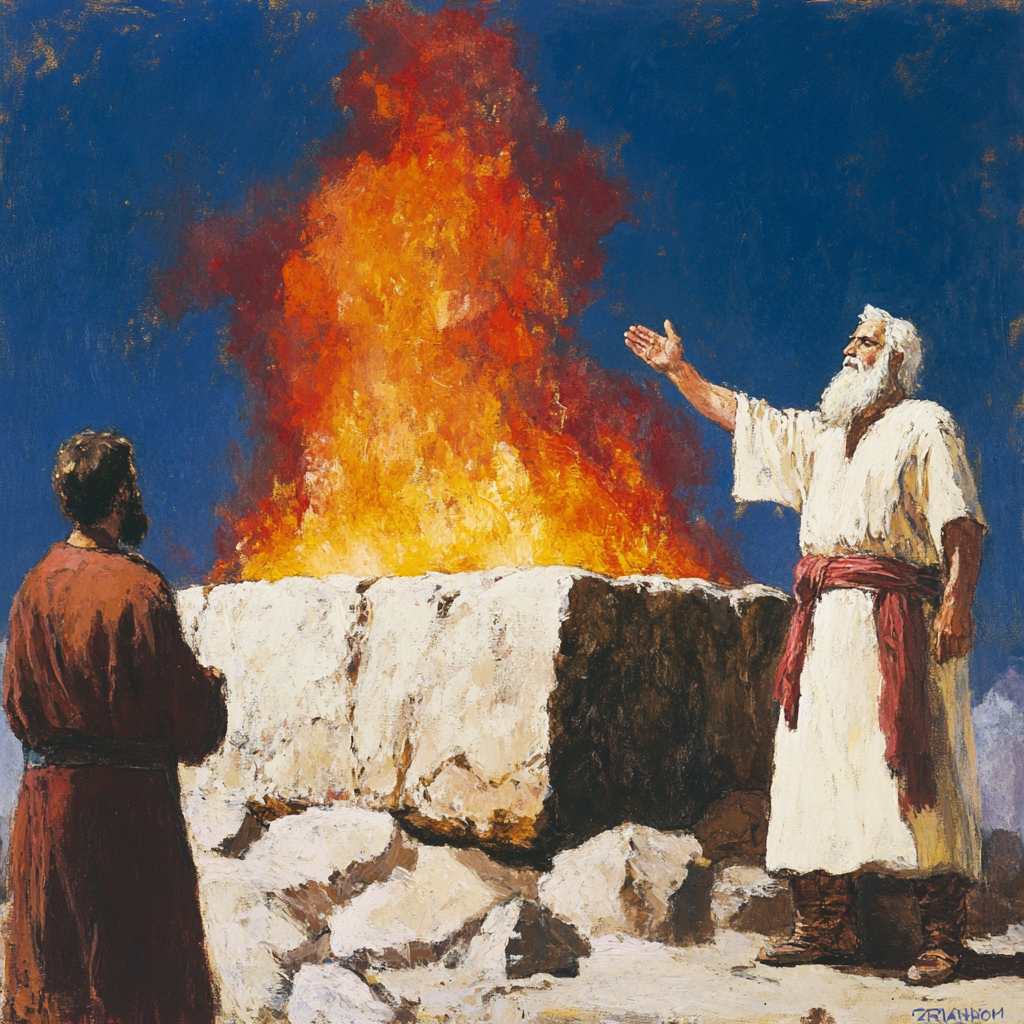Opening Verse
“Then stood up Jeshua the son of Jozadak, and his brethren the priests, and Zerubbabel the son of Shealtiel, and his brethren, and builded the altar of the God of Israel, to offer burnt offerings thereon, as it is written in the law of Moses the man of God.” – Ezra 3:2
Introduction
Ezra 3:2 tells the story of the returning exiles rebuilding the altar to restore worship to God. It’s a powerful reminder that no matter how broken or displaced we feel, our first priority must be returning to worship, seeking God’s presence, and aligning ourselves with His Word.
Devotional Story
After years of spiritual wandering, a man named Aaron felt an emptiness he couldn’t explain. Despite having everything the world considered successful, his heart longed for something more. One day, while flipping through an old family Bible, he came across Ezra 3:2. The words struck him—“builded the altar of the God of Israel.”
He realized he had abandoned his altar, the place in his heart where he once communed with God. That night, he knelt in prayer, confessing his neglect and asking God to help him rebuild his spiritual foundation. Over time, Aaron prioritized worship, prayer, and Scripture, and his life took on new meaning as he centered himself on God’s purpose.
What This Means
Rebuilding the altar is not just about physical structures—it’s about restoring worship in our hearts. It’s a call to return to God, even when we feel distant or broken. Worship is the foundation of our relationship with Him, and through it, we realign our lives with His will.
Think About This
- Have you neglected the “altar” in your life where you meet with God? What steps can you take to restore worship?
- How can you make worship a priority, even in the midst of life’s distractions?
- Reflect on the significance of offering your life as a living sacrifice to God.
Prayer
Lord, I come before You with a desire to rebuild the altar of worship in my heart. Forgive me for the times I have neglected to prioritize Your presence. Help me to restore my commitment to prayer, worship, and obedience to Your Word. Draw me closer to You as I offer my life in service and surrender. In Jesus’ name, Amen.
Closing Verse
“I beseech you therefore, brethren, by the mercies of God, that ye present your bodies a living sacrifice, holy, acceptable unto God, which is your reasonable service.” – Romans 12:1

